Children are spending more time online to study, play games and connect with friends but it is important that they have the skills to identify the difference between healthy and unhealthy relationships online.
By equipping students with online safety knowledge and skills we can ensure they know what to do if they start to feel unsafe online.
What is grooming?
Grooming is when an adult tries to build a relationship with a child so that they can sexually exploit them. Exploitation isn't always physical, it can happen online. Groomers try to build an online relationship with the child through social media, chatting in a forum, chatting in an online game or via any other platform for online communication.
If you want to learn more about how groomers get close to children and how they keep control, you can visit Netsafe(external link).
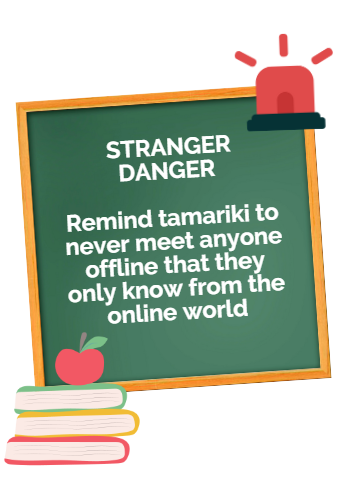
Educational programmes
Safeguarding Children have developed a programme for anyone working with tamariki in the intermediate sector which provides information on the prevention of child abuse, and how to recognise and respond to child safety and wellbeing concerns.
Keeping Ourselves Safe is a child abuse prevention programme developed by NZ Police for schools which helps students how to recognise the difference between healthy and unhealthy relationships in the physical and online worlds and encourage students who have been or are being abused to seek help.
NZ Police and Kidpower International have developed a programme to develop young people's social-emotional safety skills to help them have safe experiences online and offline. It includes child protection strategies and coaching strategies to help build children's safety skills and confidence without scaring them.
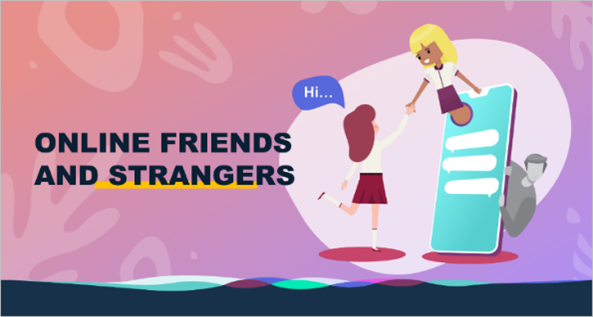
Teacher guides
The Ministry of Education provides helpful guidance to support Relationships and Sexuality Education for years 1-8. This programme focuses strongly on consensual, healthy and respectful relationships as being essential to student wellbeing.
In-class activities
eSafety Australia have created a free series of short self-paced modules that provide evidence-based advice about how to teach online safety in the classroom.
Online friends and strangers is a presentation that encourages students to think about their online friendships and what to do if an online friendship becomes unsafe.
- eSafety Commission - Online friends and strangers(external link)
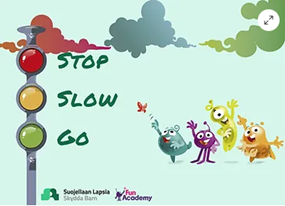
Stop, Slow & Go learning materials are developed by teachers and are based on Stop, Slow & Go traffic safety model developed by Protect Children to help children understand that different situations and content in digital environments require different actions.
- Protect Children - Stop, Slow & Go(external link)
Books
The Wolf and the Hocus Pocus to seek out a trusted adult if they are in trouble. The book also comes with an digital immersive App learning experience(external link) and free lesson plan(external link) to support educators.
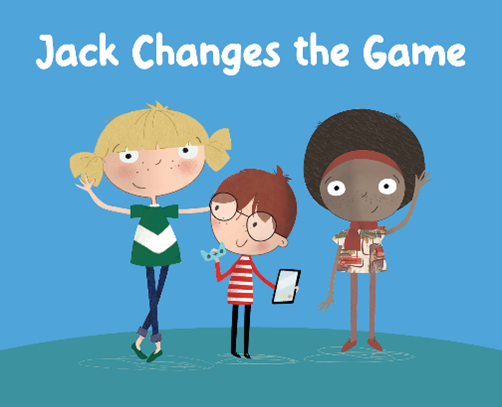
The Australian Federal Police ThinkUKnow program in partnership with the Australian Centre to Counter Child Exploitation have released Jack Changes the Game. The book takes a child's perspective to online grooming, the challenges they face and why it's important to talk to a trusted adult if they encounter any problems online. Supporting the eBook is a Teachers Toolkit(external link) and Student Activity Pack(external link).
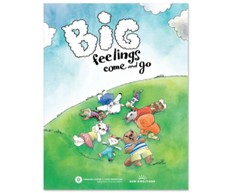
Big Feelings Come and Go, is a story book which teaches kids about freeze, flight and fight and helps them learn some basic self-regulation skills. The storybook is available for free in eBook(external link) form or you can watch the read-along storybook video series(external link).
Videos
Some predators target children online while they are playing games and can try to lure the child into a private chat room. The below video has information on how to help keep them safe from harm.
Hector's World: an engaging animated series supported by lesson plans and worksheets, offering 4–8-year-old children practical guidance on protecting their personal information and figuring out who is trustworthy online. Episodes are available in Te Reo and English.
- Netsafe - Hector's World(external link)